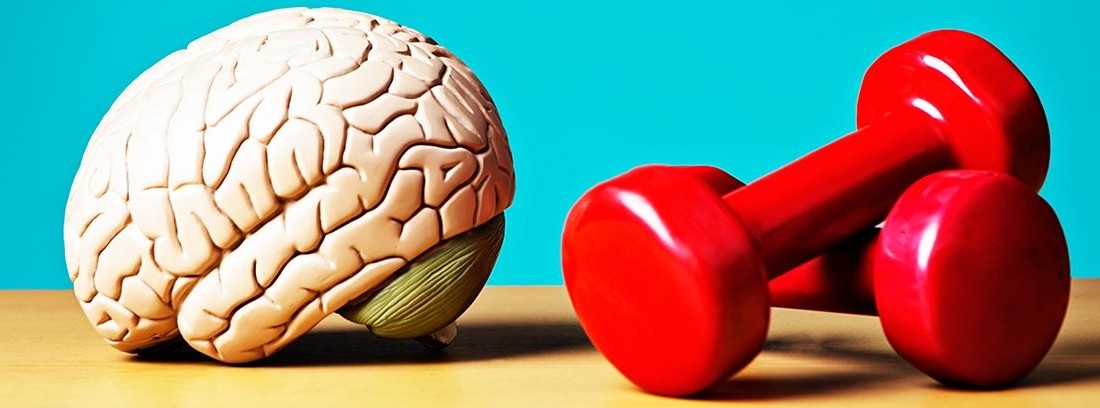Is exercising good for exercising the brain?

To the exercise my body receives multiple benefits. There are many organs or systems that, due to being active individuals, are healthier, and the brain is one of them.
It is well known that the brain It is one of the most important organs for the proper functioning of our body: it has multiple functions and which one is more important. For this reason, among other reasons, it is of great importance to keep it healthy, and exercise physical is one of the tools to achieve it.
There are many studies that different scientific groups have developed to know what the physiology of the brain is, and how it can be modified by the fact of being more or less active people, always taking into account the changes that brain tissue undergoes with the passage of the years.
Since childhood, exercising exercises the brain
When we are small, the brain is a great receptor of stimuli, it is when the brain is more plastic and cognitive performance improves. At this time it is common to hear that "children are like sponges" and studies corroborate this. According to research published in different specialized magazines, if the practice of physical activity is low in the pre-school and primary education stages, a posteriori, especially that associated with working memory decreases. Already in the early stages of life, exercise has a direct relationship with one of the functions of our brain, school performance.
Knowing what type of exercise can have a lesser or greater impact on this fact has also been the object of study and some studies conclude that cardiovascular exercise is one of those that has the greatest influence on cognitive function. To this have recently been added those activities that improve motor skills.
Exercise and cognitive development
Knowing what interventions to perform to improve performance is necessary, but how does exercise intervene in cognitive development? The changes begin with the release of substances in response to exercise, such as dopamine, serotonin, or IGF-1. Each one has its function, but in general these factors intervene in actions in which neurons or blood capillaries are involved, and by increasing their number they act in actions related to it.
In older people ...
These actions on memory are those that are also sought with the practice of physical activity in not so early stages, but quite the opposite, in those more adult stages in which there may even be pathologies such as. Learning is important for the human being, but remembering is also important, and that is the objective of some studies that have worked to understand the relationship between the practice of physical activity and memory in adults.
Mild cognitive impairment is a medical condition that is common with aging and associated with memory loss. This can eventually degenerate into more serious pathologies such as dementia and Alzheimer's. Currently, it is not possible to prevent the evolution of diseases like these, but measures can be followed to try to improve the quality of life of patients and, as recommended by the guide published by the American Academy of Neurology, exercise twice a week can improve thinking and memory ability in people with mild cognitive impairment (MCI).
Influence of active fathers and mothers on the brain of future children
The relationship between physical activity and brainAccording to science, it is a long-term relationship and is important in both the early and later stages. It is this same science and groups of researchers interested in understanding this relationship that are going further and expanding their knowledge in this area. Studies are no longer only being published in the field of academic performance or the effects on memory, but the lines of research go towards the effects that exercise has on the future, specifically on the brain of future children of mothers and fathers. active parents.
"Exercise during pregnancy improves the brain development of the child." This is one of the conclusions reached by a group of Canadian researchers. This group assessed a series of parameters in newborns from two groups of mothers, one who had done 20 minutes of exercise three days a week and another group who were sedentary. They showed that babies born to them had more mature brain activation, suggesting that their brains developed more quickly. Being still a field in which much remains to be investigated, it seems more feasible to relate the effect of a mother's exercise on her baby than that of a father, but this is also being studied, although at present only at the laboratory level. It is in Germany where this line of research is being developed and mice born from mice that had been exercising were compared with others whose parents were "sedentary" and the results were interesting since the former had brains with stronger nerve connections, they learned more fast and remembered better than the second group. These are the first studies in this field and more research needs to be done, but what is to come is promising.
- Already in the early stages of life, exercise has a direct relationship with one of the functions of our brain, school performance.
- Exercising twice a week can improve thinking and memory skills in people with mild cognitive impairment, according to the American Academy of Neurology.
- The lines of research at present go towards the effects that exercise has on the future, specifically on the brain of the future children of active mothers and fathers.
(Updated at Apr 13 / 2024)